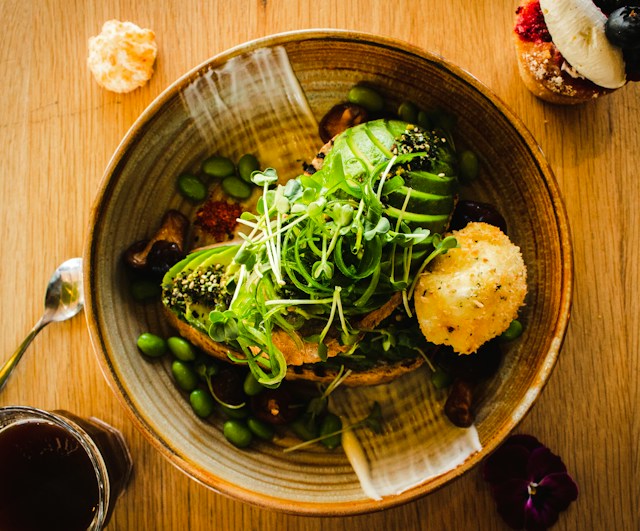Transitioning to Veganism: A Brief Overview
Veganism is gaining popularity, with more people becoming aware of its environmental benefits, ethical standpoints, and potential health advantages. The vegan diet is a plant-based nutritional approach that excludes all animal products and byproducts, from meats to dairy and even honey. However, despite its increasing popularity, many individuals struggle with ensuring their diet remains balanced and nutritionally complete when they adopt this lifestyle. Here, we delve into how you can create your own balanced vegan diet.
The Cornerstone of Vegan Nutrition: Understanding Your Nutritional Needs
When planning a vegan diet, it’s essential to understand your nutritional needs. Each person’s nutritional requirements may vary based on age, gender, lifestyle, and overall health. Here, we’ll explore the nutrients that are often a concern for vegans and provide suggestions on how to include them in your meals.
En parallèle : The science of happiness: what really makes us happy?
Protein
Despite popular belief, it’s entirely possible to obtain all essential amino acids from plant-based sources. When animal-derived proteins are not a part of your meal, you can seek out proteins from foods like lentils, chickpeas, tofu, tempeh, and seitan. Whole grains, nuts, and seeds are also excellent sources.
Vitamins
B12 is a vitamin that is critical for nerve function and the production of red blood cells, and it’s predominantly found in animal products. As a vegan, you might need to take B12 supplements or consume fortified foods, like plant-based milks or nutritional yeast.
A découvrir également : What Dietary Adjustments Can Alleviate Acid Reflux Symptoms?
Another vital vitamin is D, which is necessary for bone health and immune function. While our bodies can produce vitamin D through sun exposure, it can be challenging to get enough, especially during winter months. Some mushrooms and fortified plant-based milk are good vegan sources for this vitamin.
Iron
Iron is essential for the creation of red blood cells and transporting oxygen throughout the body. It is available in two types – heme and non-heme iron. While heme iron, found in animal products, is more readily absorbed by our bodies, vegans can consume non-heme iron from food sources like spinach, quinoa, lentils, and fortified breakfast cereals.
Formulating Your Vegan Meal Plan
Now that you’ve understood the essential nutrients you need, it’s time to create your meal plan. A balanced vegan meal plan should include a variety of fruits, vegetables, whole grains, legumes, and fortified foods, ensuring you get a wide range of nutrients.
Breakfast
Start your day with a healthy vegan breakfast. You might opt for a smoothie made from a plant-based milk, fruits, and leafy greens. You can also add a scoop of plant-based protein powder or some flaxseeds for an extra nutritional boost.
Alternatively, if you prefer something savory, try a tofu scramble or avocado toast on whole-grain bread.
Lunch and Dinner
For lunch and dinner, try to include a source of vegan protein, like lentils or tofu, a grain like quinoa or brown rice, and a variety of vegetables. You can mix and match these components to create an endless variety of meals.
Snacks
When it comes to snacks, opt for whole foods like fresh fruits, raw nuts, or roasted chickpeas. You could also opt for vegan yogurt or a homemade energy bar.
Navigating through Vegan Products
While plant-based foods form the core of a vegan diet, there’s also a vast array of vegan products available in the market. These include meat substitutes, dairy-free alternatives, vegan desserts, and more.
However, it’s essential to read labels carefully. Not all vegan products are created equal, and some may be high in added sugars or unhealthy fats. Opt for products with minimal ingredients and avoid those with unfamiliar additives.
Experimenting with Vegan Recipes
Finally, to keep your vegan diet exciting and varied, don’t hesitate to experiment with vegan recipes. From hearty soups and stews to creative salads, pastas, and even desserts, there’s a world of vegan dishes out there waiting to be explored.
Don’t be afraid to try new foods and recipes. The more varied your diet, the more balanced and nutritionally complete it will be. So, invest in a good vegan cookbook, or browse the internet for inspiration and start your vegan culinary journey today.
To sum it up, creating a balanced vegan diet is entirely attainable with a little knowledge and planning. By understanding your nutritional needs and incorporating a variety of plant-based foods, you can ensure your vegan diet is as balanced and nutritious as possible.
Understanding Supplements in a Vegan Diet
While a balanced vegan diet can provide most of the essential nutrients your body needs, there are a few nutrients that are more challenging to obtain from plant-based foods alone. These include long-chain omega-3 fatty acids, iodine, and vitamin B12.
Long-chain omega-3 fatty acids are important for heart and brain health. While our bodies can convert the omega-3 found in flaxseeds, chia seeds, and walnuts into the long-chain form, the conversion rate is typically low. Hence, it might be beneficial for vegans to consider a supplement derived from microalgae, a plant-based source of long-chain omega-3s.
Iodine is crucial for thyroid function, and the main sources are sea creatures and dairy products. Vegans can get iodine from seaweed or iodized salt, but the amount in these sources can vary widely. Therefore, an iodine supplement may be a reliable option for some vegans.
As mentioned earlier, vitamin B12 is predominantly found in animal products, and deficiency can lead to severe neurological problems. Therefore, B12 supplementation is strongly recommended for all vegans.
It’s important to consult with a dietitian or healthcare provider before beginning any supplement regimen to ensure you’re meeting your individual nutritional needs safely.
The Conclusion: Maintaining a Balanced Vegan Diet
Adopting a vegan diet is a commendable decision that can have beneficial impacts on your health, the environment, and animal welfare. However, it’s essential to approach veganism with an understanding of your nutritional needs and a thoughtful meal planning strategy to ensure a balanced diet.
Creating a balanced vegan meal plan involves including a variety of fruits, vegetables, whole grains, legumes, and fortified foods. It’s also necessary to research and understand vegan products available in the market, as not all are created equal.
Incorporating a range of plant foods into your meals ensures you are acquiring a wide variety of nutrients, and experimenting with vegan recipes can help keep your diet exciting and enjoyable. For certain nutrients harder to obtain from plant-based foods alone, like long-chain omega-3 fatty acids and iodine, consider consulting with a healthcare provider about potential supplements.
In the end, it’s all about balance and variety. By embracing a diverse range of plant foods, you can ensure your vegan diet is not only ethically and environmentally aligned but also nutritionally complete. Enjoy the journey of exploring plant-based nutrition and savor the discovery of new foods and flavors along the way. Remember, the key to a successful vegan diet lies in your hands. It’s your dedication, planning, and creativity that will create a balanced and delightful vegan diet.
















